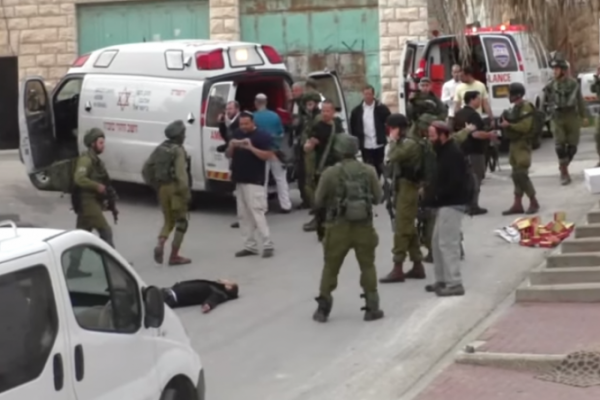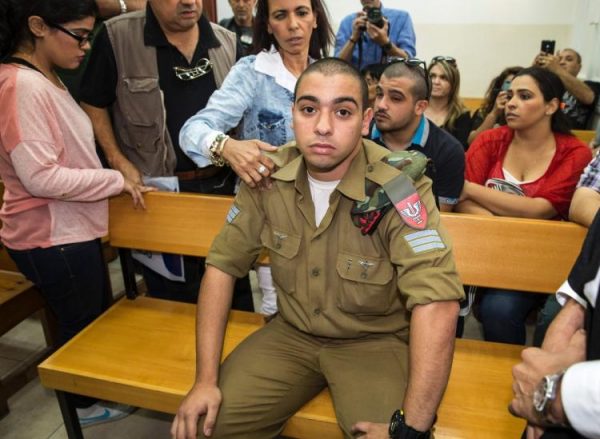
A 13-year-old Palestinian girl approaches an Israeli checkpoint and is shot in the legs when she refuses to stop. A 16-year-old Palestinian boy tries to stab Israeli soldiers at a different checkpoint, and is immediately shot and killed. A Jordanian holding a kitchen knife in each hand and shouting “Allah Akhbar” (God is great) attempts to stab Israeli police officers. He is also shot and killed.
These and other incidents over the last week show a sudden uptick in violence in Israel and the West Bank. Six Palestinians – who Israelis say carried out attacks or attempted to – have been killed, plus the Jordanian. At least six Israelis — civilians and security forces — have been injured. One of the officers is in critical condition in a Jerusalem hospital.
The attacks follow a roughly four-month lull in the violence that started almost a year ago. Throughout the spring and summer, there were only a handful of violent incidents, though there were some deaths on both sides.
When the violence began last fall, the stabbings, shootings and car-ramming attacks occurred almost daily. Since Oct. 1, 2015, 36 Israelis, as well as two American citizens and an Eritrean, and more than 230 Palestinians have been killed.
Israelis are calling it the “knife intifada.”
They say it is not organized by a terror group, as in the past, but is spurred by incitement in the mainstream and social media, copycat attacks, personal distress or maybe the desire to be a martyr or die a hero for the Palestinian cause.
Palestinians say the attacks are a natural reaction to a situation of hopelessness fostered by the growth of Israeli settlements on land they hope for a future state, a rightward shift in government policies, and their own ineffective Palestinian leadership.
“It is like an accumulation of water in a glass; each drop adds to the water, and eventually it spills over,” said Diana Buttu, a Palestinian analyst who was once involved in peace negotiations. “There is no progress. The Israeli army is present all the time, and there is no hope for change. The Palestinian people are just fed up.”
Speaking at the United Nations General Assembly in New York on Thursday, Palestinian President Mahmoud Abbas said there was “no way to defeat terrorism and extremism and achieve security and stability in our region without ending the Israeli occupation.”
An hour later, Israeli Prime Minister Benjamin Netanyahu responded that it was the Palestinian leadership that was filling its young people with hatred and hopelessness by celebrating the actions of those who have killed Israelis and for refusing to reach a peace deal.
“I call on President Abbas: You have a choice to make. You can continue to stoke hatred, as you did today, or you can finally confront hatred and work with me to establish peace between our two peoples,” Netanyahu said.

Moshe Maoz, a professor emeritus in Islamic and Middle Eastern studies at the Hebrew University of Jerusalem, said the violence is a product of the strife in Israel. “Netanyahu likens what is happening here to the global terrorism threat, but it is different,” he said. “It is a nationalistic issue and a very important one. It is a situation that is unique to the area.”
Maoz called the lull in violence over the summer months “superficial.”
“The Israeli occupation has gone on for 50 years without a break,” he said. “Palestinians say they don’t have anything to lose. They have no hope. It is a deadlock, and they don’t see any future.”
The incident involving the Palestinian girl occurred Wednesday morning. She approached an Israeli military checkpoint and was shot in the legs after refusing to stop. Unarmed, the girl told investigators she had “come here to die.”
A day earlier, a Palestinian boy tried to stab soldiers at another checkpoint. The youth, who was killed, was a relative of another young Palestinian, who in July stabbed and killed a 13-year-old Israeli girl as slept in her bed in the nearby Israeli settlement of Kiryat Arba.
The renewed violence began on Friday, when a Jordanian national tried to stab Israeli police officers stationed at Jerusalem’s Damascus Gate. He was shot dead. Later that day, two Palestinians – a man and woman said to be cousins – rammed their car into a bus stop. After wounding three Israeli civilians, the man was killed and the woman injured.
Also on Friday, a knife-wielding Palestinian was shot by soldiers in Hebron. Another attack took place in the same area on Saturday. The assailant was also shot and killed.
Sunday, a Palestinian tried to enter the Israeli settlement of Efrat. He stabbed and lightly wounded an Israeli police officer before being arrested.
On Monday, a Palestinian man was killed after stabbing two Israeli police officers, seriously wounding one. She remains hospitalized.
“The (stabbing) phenomena is unexplainable but as long as there is an occupation these actions will continue,” said Ayman Daragmeh, a representative of Hamas on the Palestinian Legislative Council.
“These are attacks of individuals, people have lost hope in their leadership and as long as there are no political solutions this will continue,” he said.
Qadura Farres, head of the Palestinian Prisoner’s Society also pointed to a certain hopelessness driving the attacks.
“All the policies of the Israeli occupation and the settlement activities have shut down hope for the Palestinians to establish a state and have pushed them towards confrontation with Israel,” he said.
REUTERS

Leave a Reply
You must be logged in to post a comment.